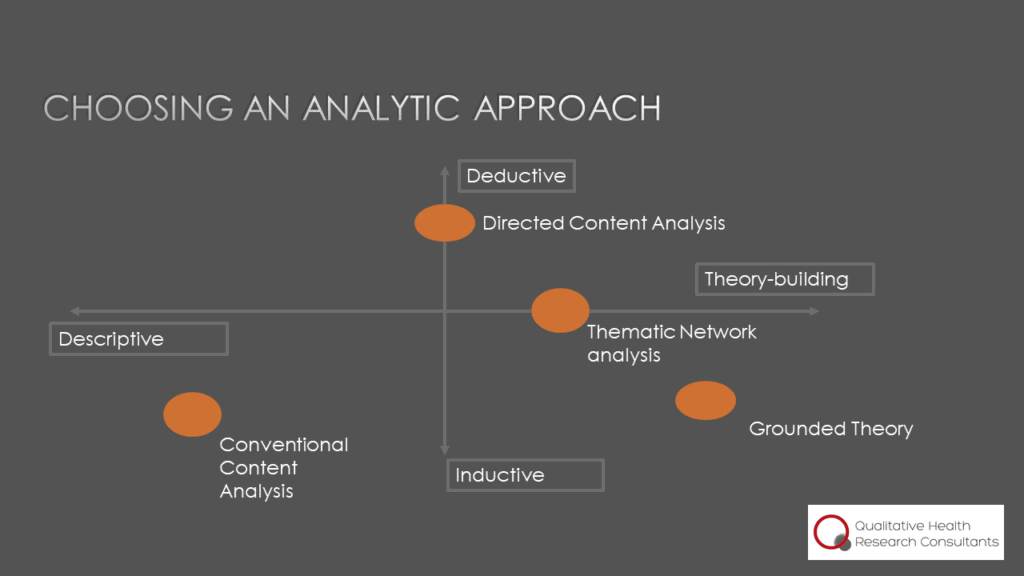Data Analysis Methods
Multiple Approaches to Qualitative Data Analysis
All Qualitative Data Analysis involves tagging text with common themes, and comparative analysis of the patterns that emerge. We offer multiple approaches to qualitative data analysis using the latest software packages. Use this diagram to select the QDA approach that works best for your project.

Depending on the research aim, we offer the following approaches:
Grounded Theory
Grounded Theory is the earliest form of systematic qualitative data analysis. It involves constantly developing and testing hypotheses as the data are collected and analyzed. This approach is purely inductive. Its aim is theory-generation. Useful for when little is known about a phenomenon and when the project has a lengthy timeline to allow for multiple waves of data collection and analysis. See projects using grounded theory.
Conventional Content Analysis
Conventional Content Analysis is similar to Grounded Theory in that the approach is primarily inductive. It differs in that its aim is descriptive, not theory building, and therefore does not require constant comparison and hypothesis testing. Useful for developing descriptive analysis in a relatively short timeline. See projects using conventional content analysis.
Directed Content Analysis
Directed Content Analysis differs from the conventional approach in that existing literature and theoretical frameworks are used to guide the process of codebook development. Useful for when a great deal is already known about a topic and your research aim is to elaborate on or otherwise address what is known. Also useful with smaller samples and shorter timelines. See projects using directed content analysis.
Thematic Network Analysis
This approach is similar to Conventional and Directed Content analysis, with an additional set of steps. Thematic Network Analysis builds on the interrelations between and among themes to develop a model illustrating their connections. Useful when a conceptual model is the end goal.

